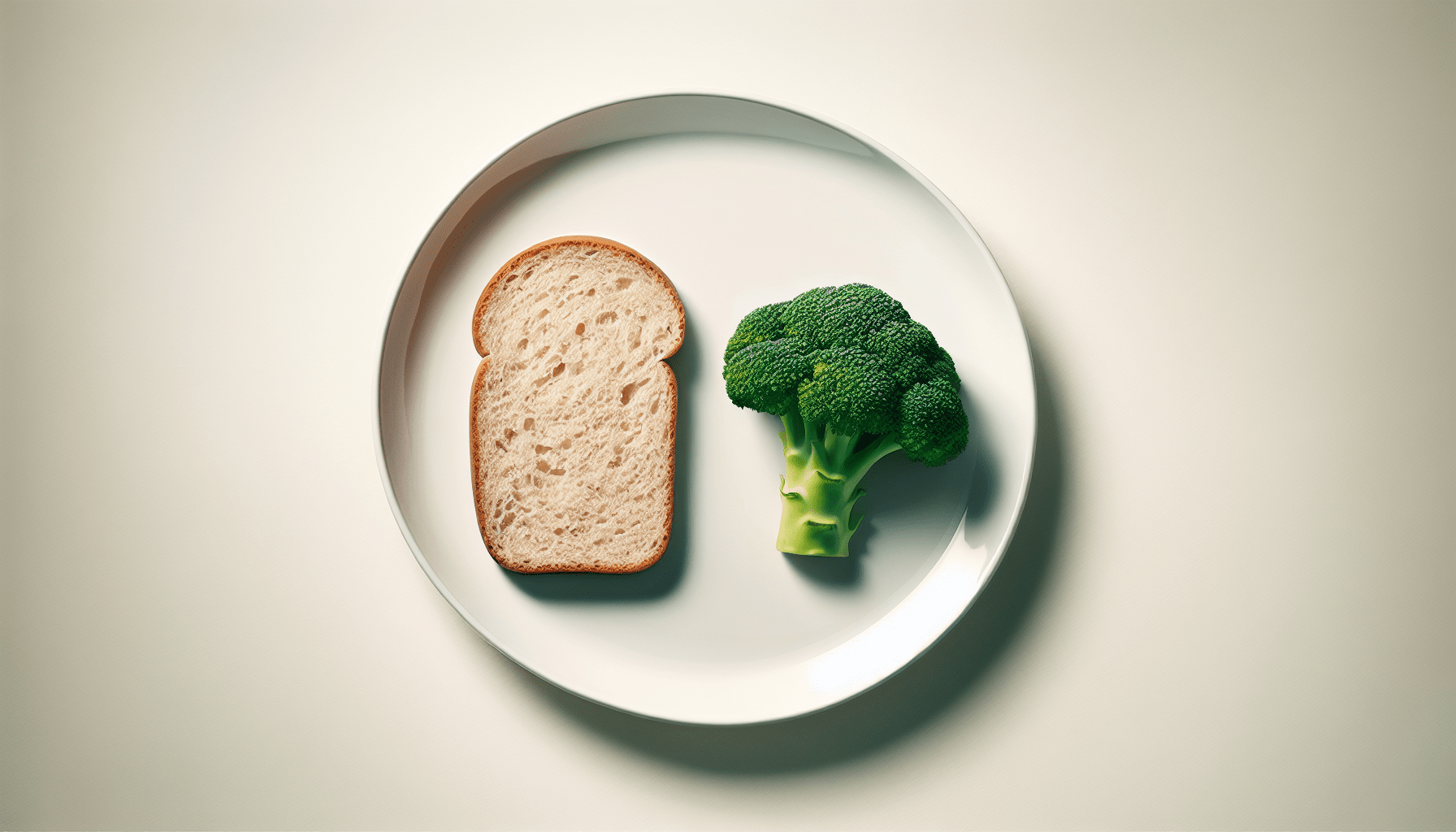Are you tired of conflicting information about carbs and not knowing which ones to include in your diet? Look no further! In “The Truth About Carbs: What To Keep And What To Cut,” we will provide you with a comprehensive guide to understanding the world of carbohydrates. Discover which carbs are essential for a healthy lifestyle and which ones you should consider reducing. This article aims to give you clarity and empower you to make informed decisions about your food choices. Remember to consult a health professional before making any changes to your diet or exercise routine.
Discover the Ultimate Weight Loss Secrets Here!
Understanding Carbohydrates
What are carbohydrates?
Carbohydrates are one of the three macronutrients, alongside proteins and fats, that are essential for our bodies. They are a primary source of energy and play a crucial role in the functioning of our cells, tissues, and organs. Carbohydrates are made up of sugar molecules and are found in various foods such as grains, fruits, vegetables, and dairy products.
Types of carbohydrates
Carbohydrates can be categorized into two main types: complex carbohydrates and simple carbohydrates. Complex carbohydrates, also known as polysaccharides, are made up of long chains of sugar molecules. They take longer to digest and provide a steady and sustained release of energy. Examples of complex carbohydrates include whole grains, legumes, and starchy vegetables like potatoes and corn.
On the other hand, simple carbohydrates, also known as monosaccharides and disaccharides, are composed of one or two sugar molecules. They are quickly digested and provide a fast burst of energy. Foods high in simple carbohydrates include sugar, honey, candy, soda, and fruit juices.
The role of carbohydrates in the body
Carbohydrates are the primary source of energy for the body. When we consume carbohydrates, they are broken down into glucose, which is then used by our cells as fuel. Glucose not only provides energy for everyday activities but also powers our brain, muscles, and organs. Carbohydrates also have a role in protein synthesis, regulation of blood sugar levels, and storage of energy as glycogen in the liver and muscles.
Good Carbs vs Bad Carbs
Complex carbohydrates
Complex carbohydrates should form the majority of our carbohydrate intake. They are a healthier option compared to simple carbohydrates because they contain more fiber, vitamins, and minerals. Complex carbohydrates are digested slowly, which helps regulate blood sugar levels, promotes satiety, and provides a consistent energy supply. Foods rich in complex carbohydrates include whole grains, brown rice, quinoa, oats, and legumes.
Simple carbohydrates
Simple carbohydrates, although they provide quick energy, should be consumed in moderation. These carbohydrates are often refined and lack the nutrients present in complex carbohydrates. Consumption of simple carbohydrates in excess can lead to blood sugar spikes, weight gain, and increased risk of chronic diseases. It’s important to choose natural sources of simple carbohydrates such as fruits, which also provide essential vitamins and minerals.
Refined carbohydrates
Refined carbohydrates are highly processed and stripped of most of their nutrients and fiber. They are often found in products made from white flour, such as white bread, white rice, pasta, and pastries. These refined carbohydrates are quickly digested and cause sharp rises in blood sugar levels. Regular consumption of refined carbohydrates can contribute to weight gain, increased risk of type 2 diabetes, and heart disease. It is best to limit the intake of refined carbohydrates and opt for whole grain alternatives.
Click Here for Proven Fat-Burning Strategies!
The Impact of Carbohydrates on Health
Carbohydrates and weight gain
Carbohydrates have often been unfairly blamed for weight gain. While excessive consumption of calories from any macronutrient can lead to weight gain, carbohydrates themselves are not inherently fattening. In fact, healthy carbohydrates can provide essential nutrients and help manage weight when consumed in appropriate portions. The key is to choose complex carbohydrates and be mindful of total caloric intake.
Carbohydrates and blood sugar
Carbohydrates have a significant impact on blood sugar levels. Simple carbohydrates, especially refined ones like sugar and white bread, cause a rapid increase in blood sugar levels. This spike is followed by a quick drop, leading to feelings of hunger and cravings for more sugary foods. Complex carbohydrates, on the other hand, are digested more slowly, leading to a gradual and stable rise in blood sugar levels. Balancing carbohydrate intake with other nutrients and choosing complex carbohydrates can help maintain stable blood sugar levels.
Carbohydrates and energy levels
Carbohydrates are the primary source of energy for our bodies. They provide the fuel needed for physical activity, brain function, and daily tasks. Consuming an appropriate amount of carbohydrates, especially complex carbohydrates, ensures a steady supply of energy throughout the day. Additionally, carbohydrates spare protein from being used for energy, allowing it to fulfill its role in muscle repair and growth. It is important to have a balanced intake of carbohydrates to maintain optimal energy levels.
Carbohydrates and Weight Loss
The truth about low-carb diets
Low-carb diets have gained popularity for weight loss, but it is important to separate fact from fiction. While reducing carbohydrate intake can lead to initial weight loss, it is often due to a reduction in overall calorie intake rather than a specific effect of carbohydrates. Low-carb diets may also cause initial water weight loss, which can be misleading. Long-term success in weight loss is more dependent on maintaining a calorie deficit and following a balanced diet rather than focusing solely on carbohydrates.
Choosing the right carbs for weight loss
When aiming for weight loss, it’s essential to make wise carbohydrate choices. Opt for complex carbohydrates that are rich in fiber, such as whole grains, fruits, and vegetables. These options not only provide essential nutrients but also promote feelings of fullness and help control hunger. Additionally, choosing foods with a lower glycemic index can help regulate blood sugar levels and prevent spikes and crashes in energy.
Portion control for weight loss
Portion control plays a critical role in weight loss. While carbohydrates are an important part of a balanced diet, consuming them in excessive portions can hinder weight loss efforts. It’s crucial to be mindful of portion sizes and to include other macronutrients (proteins and fats) along with carbohydrates to create a well-rounded meal. Balancing portion sizes and considering the overall energy density of the meal can help achieve and maintain a healthy weight.

Unlock Your Path to a Healthier You!
Cutting Carbs the Healthy Way
Identifying sources of empty carbs
Empty carbs refer to those that provide little to no nutritional value. They are often found in processed foods, sugary snacks, and beverages. Identifying and eliminating these sources of empty carbs can help improve overall nutrition and reduce excess calorie intake. Reading food labels, avoiding products with added sugars, and choosing whole, unprocessed foods are effective ways to cut out empty carbs.
Reducing added sugars
Added sugars are a major contributor to excessive carbohydrate intake and can have negative effects on overall health. Cutting back on foods and beverages high in added sugars can not only reduce calorie consumption but also improve dental health, prevent weight gain, and lower the risk of chronic diseases such as type 2 diabetes and heart disease. Choosing naturally sweetened foods, using alternatives like stevia or monk fruit, and reducing processed food intake are strategies to reduce added sugar consumption.
Replacing refined carbs with whole grains
Replacing refined carbohydrates with whole grains is an excellent way to cut carbs while still providing essential nutrients. Whole grains are rich in fiber, vitamins, minerals, and antioxidants. They have a lower glycemic index, meaning they have a more gradual impact on blood sugar levels. Swap white bread, pasta, and rice for whole grain alternatives like whole wheat bread, brown rice, and whole wheat pasta. This switch can improve overall health and control carbohydrate intake more effectively.
Carbs for Energy and Performance
Carbohydrates as fuel for exercise
Carbohydrates are the primary fuel source for physical activity, making them essential for optimal performance. During exercise, the body uses glycogen, the stored form of carbohydrates, to fuel working muscles. Consuming adequate carbohydrates before a workout ensures that glycogen stores are topped up, allowing for sustained energy levels and improved endurance. Complex carbohydrates provide a longer-lasting source of energy, while simple carbohydrates can be beneficial for a quick energy boost before intense physical activity.
Timing carbohydrates for optimal performance
The timing of carbohydrate consumption can influence how effectively they are utilized during exercise. Consuming a carbohydrate-rich meal or snack 1-3 hours before a workout provides the body with enough time to digest and absorb the carbohydrates, ensuring a readily available energy source. Additionally, consuming small amounts of carbohydrates during prolonged exercise, such as endurance events, can help maintain blood sugar levels and delay fatigue. Experimenting with different timing strategies can help individuals determine the optimal carbohydrate intake for their specific exercise routine.
Replenishing carbohydrates after workouts
After intense physical activity, replenishing glycogen stores is crucial for recovery and to prepare for the next workout. Consuming a combination of carbohydrates and protein within 30 minutes to 2 hours post-exercise helps restore glycogen levels and promotes muscle repair. The intake of carbohydrates after exercise triggers the release of insulin, which enhances glycogen synthesis and muscle protein synthesis. Including carbohydrates in post-workout meals or snacks can aid in recovery and ensure optimal performance for subsequent workouts.

Carbohydrates and Digestive Health
Fiber-rich carbohydrates for good digestion
Fiber is a crucial component of carbohydrates that plays a significant role in maintaining digestive health. It promotes regular bowel movements, prevents constipation, and supports the growth of healthy gut bacteria. Consuming fiber-rich carbohydrates, such as whole grains, fruits, vegetables, and legumes, can help prevent digestive disorders like diverticulosis, hemorrhoids, and irritable bowel syndrome (IBS). Aim for a variety of high-fiber carbohydrates to support overall digestive health.
Avoiding bloating and discomfort
Some carbohydrates can cause bloating and discomfort, especially in individuals with certain digestive conditions like irritable bowel syndrome (IBS) or lactose intolerance. Foods high in fermentable carbohydrates known as FODMAPs (fermentable oligosaccharides, disaccharides, monosaccharides, and polyols) can exacerbate these symptoms. It’s important for individuals with digestive issues to identify trigger foods and adjust their carbohydrate intake accordingly. Working with a registered dietitian or healthcare professional can help navigate these dietary modifications.
Balancing carbohydrates with other nutrients
Carbohydrates should be consumed as part of a well-balanced diet that includes adequate amounts of protein and healthy fats. Balancing macro and micronutrients ensures that the body receives all the necessary nutrients for overall health and well-being. Including sources of lean protein, such as poultry, fish, legumes, and tofu, and healthy fats like avocado, nuts, and olive oil, alongside carbohydrates creates a meal that provides sustained energy, aids in muscle repair, and supports various bodily functions.
The Truth About Carbohydrate Myths
Carbs make you fat
One common myth surrounding carbohydrates is that they directly lead to weight gain. However, weight gain is determined by the overall balance between calorie intake and expenditure, rather than the consumption of a particular macronutrient. While it’s essential to be mindful of portion sizes and choose healthier carbohydrate sources, blaming carbohydrates alone for weight gain oversimplifies a complex issue. Consuming carbohydrates within a balanced diet can support weight management, provided that overall calorie consumption is appropriate.
All carbs are equal
Not all carbohydrates are created equal in terms of nutritional value and impact on health. Complex carbohydrates, which are rich in fiber, vitamins, and minerals, provide more sustained energy and contribute to overall health. Simple carbohydrates, especially those from refined sources like sugar and white flour, lack essential nutrients and can cause blood sugar spikes. It’s important to focus on consuming nutrient-dense carbohydrates and include a variety of whole foods in the diet.
Carbs should be completely eliminated
Another prevalent misconception is that carbohydrates should be completely eliminated from the diet. While reducing carbohydrate intake can be beneficial for certain individuals under specific circumstances, completely eliminating carbohydrates is unnecessary for most people and can lead to nutrient deficiencies. Carbohydrates, especially complex carbohydrates, provide essential nutrients, fiber, and energy. Making informed choices about the types and amounts of carbohydrates consumed is a more sustainable and healthy approach.

Finding the Right Carbohydrate Balance
Understanding your individual needs
The ideal carbohydrate balance varies from person to person depending on various factors such as age, gender, activity level, and overall health. It’s important to consider individual needs and goals when determining carbohydrate intake. Some individuals may require higher carbohydrate intake for vigorous physical activity, while others may need to limit carbohydrates for specific health conditions or weight loss. Consulting a registered dietitian can provide personalized guidance based on individual needs.
Experimenting with carbohydrate intake
Finding the optimal carbohydrate intake often involves some trial and error. It can be helpful to experiment with different levels of carbohydrate intake and observe how the body responds. Some individuals may feel more energized and perform better with a higher carbohydrate intake, while others may experience improved weight management or blood sugar control with a lower carbohydrate intake. Paying attention to how the body feels and functions with different levels of carbohydrates can guide the decision-making process.
Listening to your body’s cues
Ultimately, the best guide for finding the right carbohydrate balance is listening to the body’s cues. Tuning in to hunger and fullness signals, monitoring energy levels, and observing how different foods affect overall well-being can provide valuable insight. Each person’s carbohydrate needs are unique, and finding the right balance is about finding what works best for your body. Trusting your body’s signals and making informed choices based on individual needs is key to maintaining a healthy carbohydrate balance.
Note
Remember to consult a health professional before making any changes to your diet or exercise routine. They can provide personalized advice and recommendations based on your specific needs and goals. A registered dietitian can help create an individualized plan that incorporates the right balance of carbohydrates, proteins, fats, and other key nutrients to support overall health and well-being.

